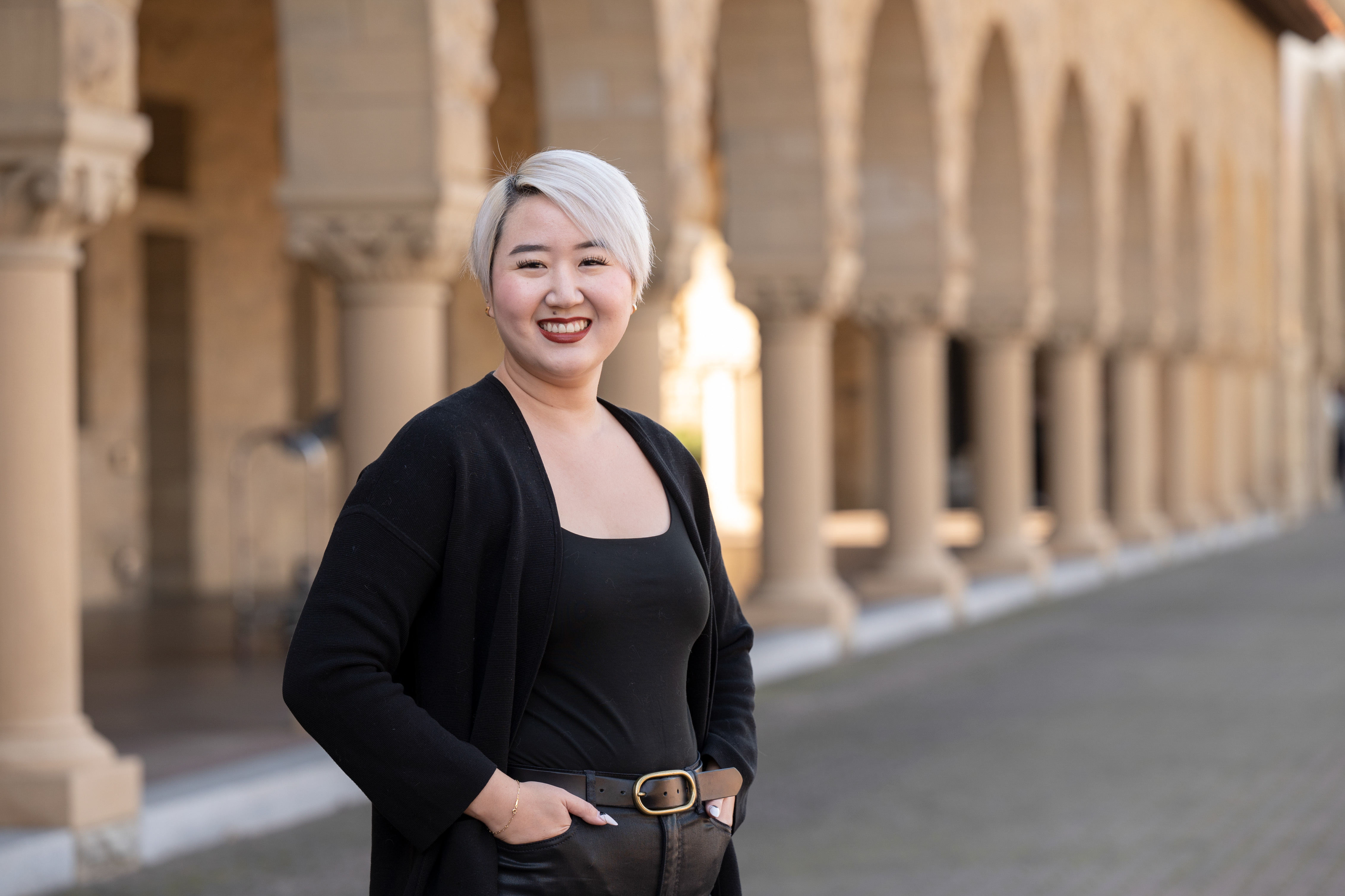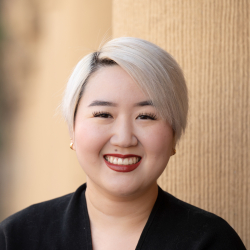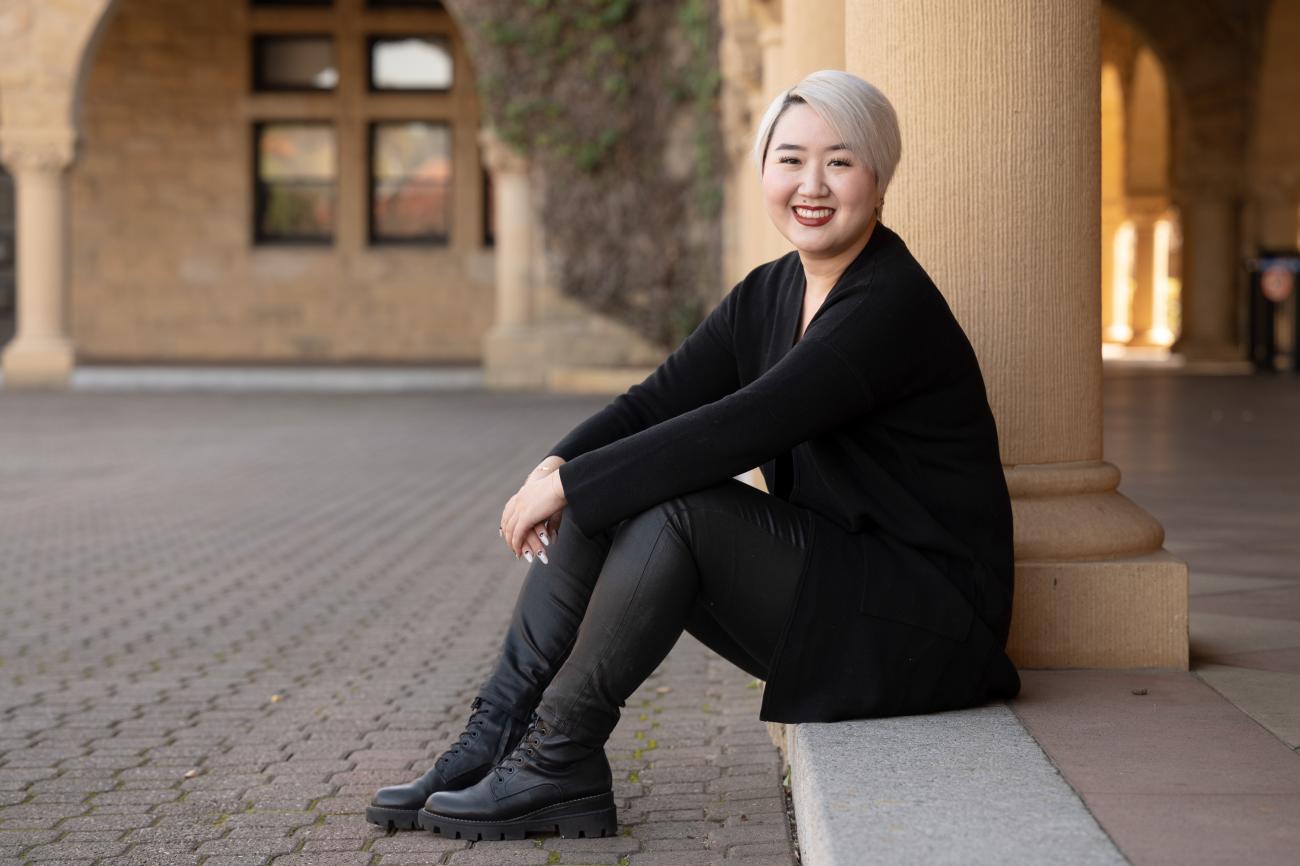
Candice Jeehae Kim
What drew you to study education?
I have always been deeply passionate about teaching in the classroom and mentoring students outside of formal learning spaces. Through my lived experiences as a queer, non-binary Person of Color and practicing educator and mentor, I saw firsthand the inequities of the higher education system, particularly for multiply marginalized students. These experiences, both in my own life and those of students I have had the great privilege of working with, inspired my interest in pursuing a PhD in education. I aspire to connect research with practice to abolish inequities in higher education and reimagine an education system grounded in justice.
What were you doing prior to applying to the GSE?
I was a medical student at Stanford School of Medicine. After completing my PhD, I will return to the School of Medicine to complete my MD. I feel incredibly fortunate to be able to pursue advanced studies in education in addition to my medical training. Advancing social justice is not a singular disciplinary challenge but rather a complex landscape that spans all of society. There is so much synergy between education and healthcare, and exploring both disciplines simultaneously has transformed my career trajectory and learning experience at Stanford.
What research are you pursuing at Stanford? What is your dissertation work or plans?
My dissertation research is focused on examining the systemic processes that push out multiply marginalized students of color from the medical education trajectory – and highlight the radical forms of resistance and resilience they enact to persist. I seek to center the voices of those who have been disenfranchised by using critical qualitative methodologies to empower experiential knowledge as valuable and necessary in imagining a more just future.
How would you describe the other doctoral students in your program?
I have met some of my closest graduate school friends at the GSE – the community is truly special. I feel so grateful to be surrounded by individuals who inspire me every day and collectively work toward transforming society through our own avenues of impact. Change does not happen overnight, nor is it accomplished by one person. I feel incredibly privileged to be part of a lifelong community of scholars, activists, and changemakers.

Is there some time that you spent with a member of the GSE faculty that you found memorable?
Many of my most memorable experiences at the GSE have been in the classroom teaching alongside GSE faculty. Co-teaching with faculty has opened up the opportunity for me to learn from incredibly experienced educators and learn new approaches to pedagogy and syllabus design. As a higher education practitioner, I am so grateful that the GSE prioritizes teaching opportunities for graduate students throughout the PhD trajectory. I never felt like I was forced to choose between teaching and research, allowing me to continue doing what I love both inside and outside the classroom.
What impact do you hope your work will have?
I hope that my research will inform future practices and policies in higher education institutions that will ultimately serve to transform our physician workforce. Decades of research have corroborated the severe underrepresentation of Black, Latinx, and Indigenous students of color – particularly those who identify as first-generation college students and/or low-income – across the multitude of education stages required to become a practicing physician. Despite extensive research documenting this problem, there has been a persistent lack of studies that center the voices of multiply marginalized students themselves. I hope my work will serve to highlight marginalized students’ stories as legitimate and necessary sources of knowledge required to dismantle racism, ableism, and classism (among other systems of oppression) in higher education.
Any tips for incoming students to help them get the most from their time here?
Be open to new opportunities and new ways of thinking! Although I had prior experience teaching in higher education before coming to the GSE, I had limited exposure to educational theory and methodologies. My journey in the GSE has involved widespread exploration of different areas of scholarship, and I have ultimately found my disciplinary home in critical race theory. I did not know this would be the case at the start of my PhD! The classes I have taken, the faculty I have engaged with, and my interactions with other students have played an instrumental role in shaping my scholarly trajectory.

Photos by Rod Searcey
